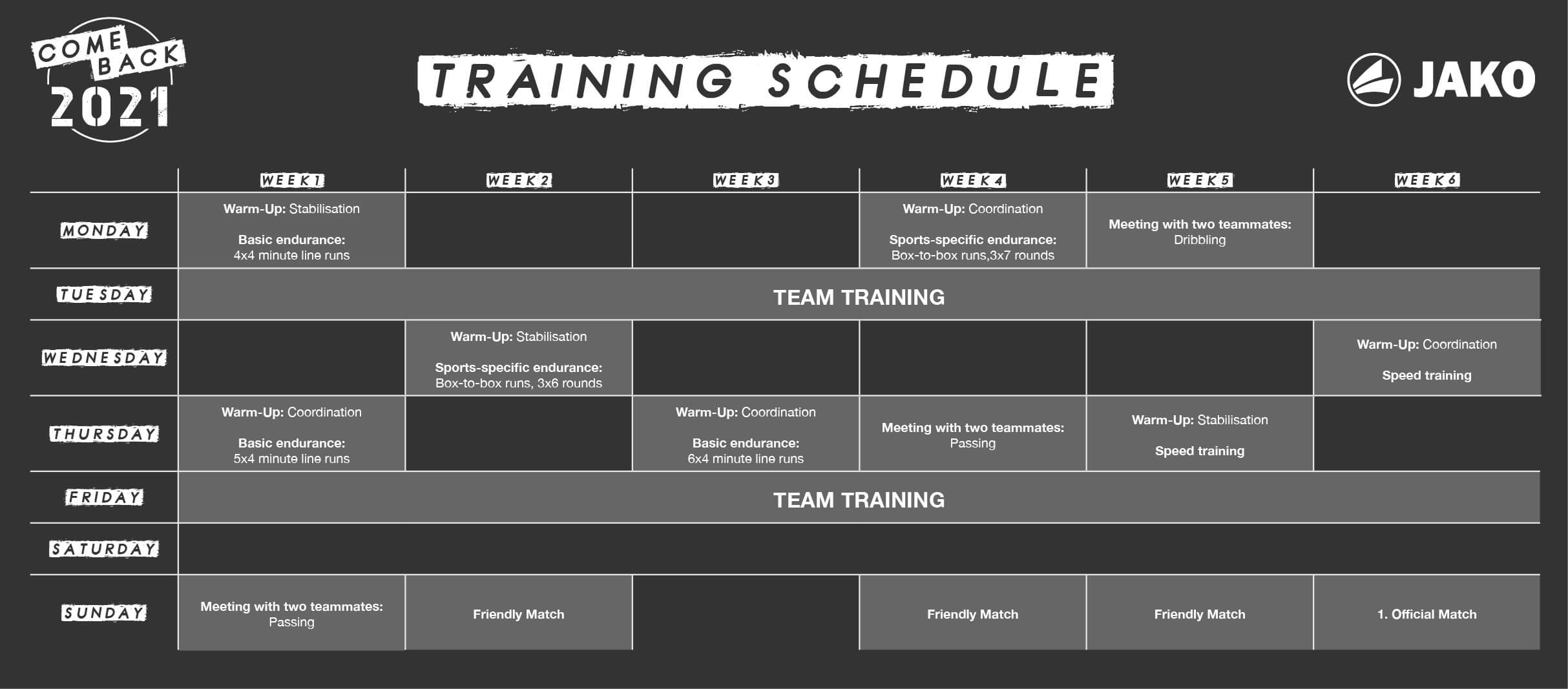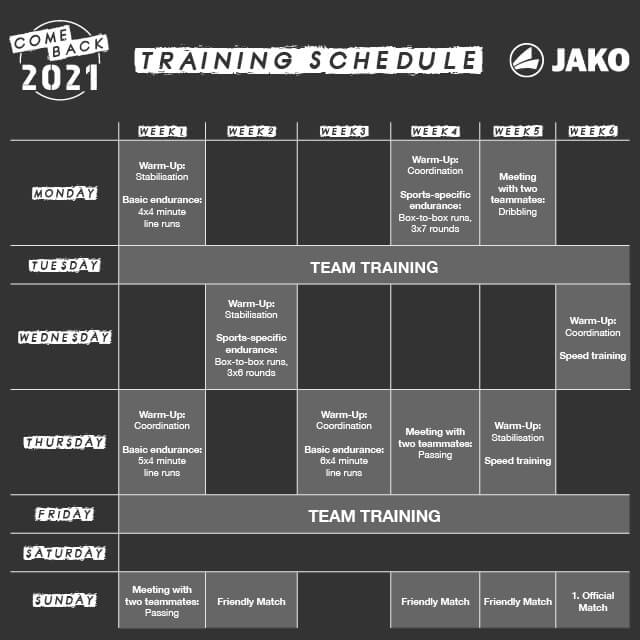Finally, it's getting back to the football fields!
Perfect preparation is now important to get started with your team. Together with Heiko Geber (co-coach of VfB Stuttgart's U21 team), Tim Riedel and Maurice Mülder (both athletics coaches at Bayer 04 Leverkusen), we'll make you fit for the comeback 2021! Are you ready?

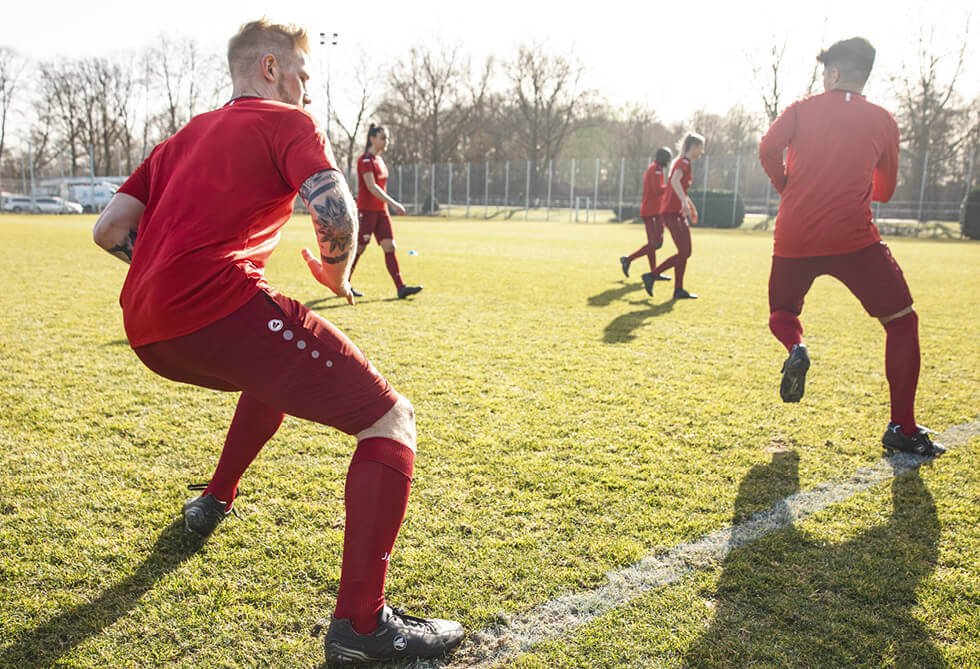
Basic Endurance
Basic endurance training delivers what its name promises: it forms the basis for your performance by preparing your cardiovascular system and musculoskeletal system for the stress of a football match. This allows you to maintain your performance over a long period of time, regenerate more quickly and avoid overuse injuries.
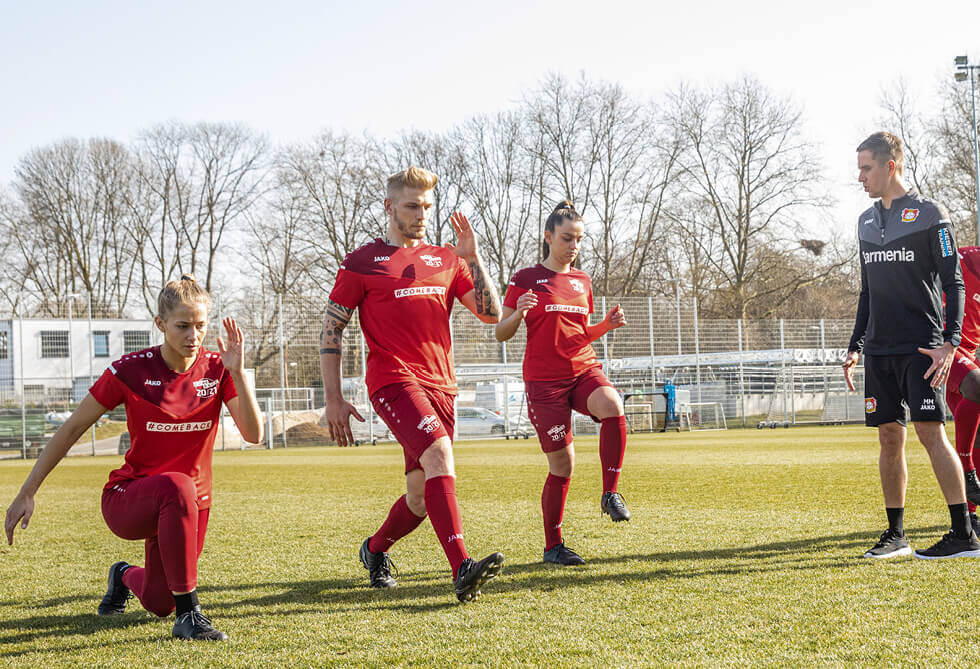
Stabilisation
Leg axis stability training is a valuable addition to trunk stabilisation, which is usually trained with planks, push-ups and more. Good leg axis stability improves movement economy and prevents injuries by optimising the central nervous system's control of the muscles. Or simply put: your brain learns to control your feet better.
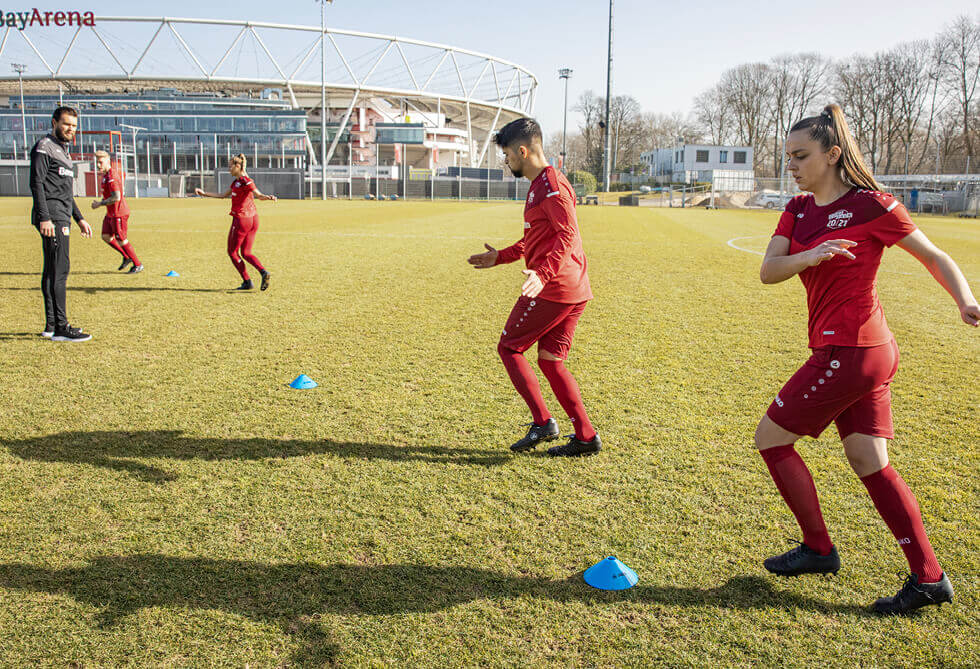
Coordination
As a footballer, you are (unfortunately) only on the ball for one minute per game on average. How you move during the remaining 89 minutes is therefore of decisive importance for your performance. With the running school, as implemented in the Bayer 04 Leverkusen training centre, you train your coordination skills.
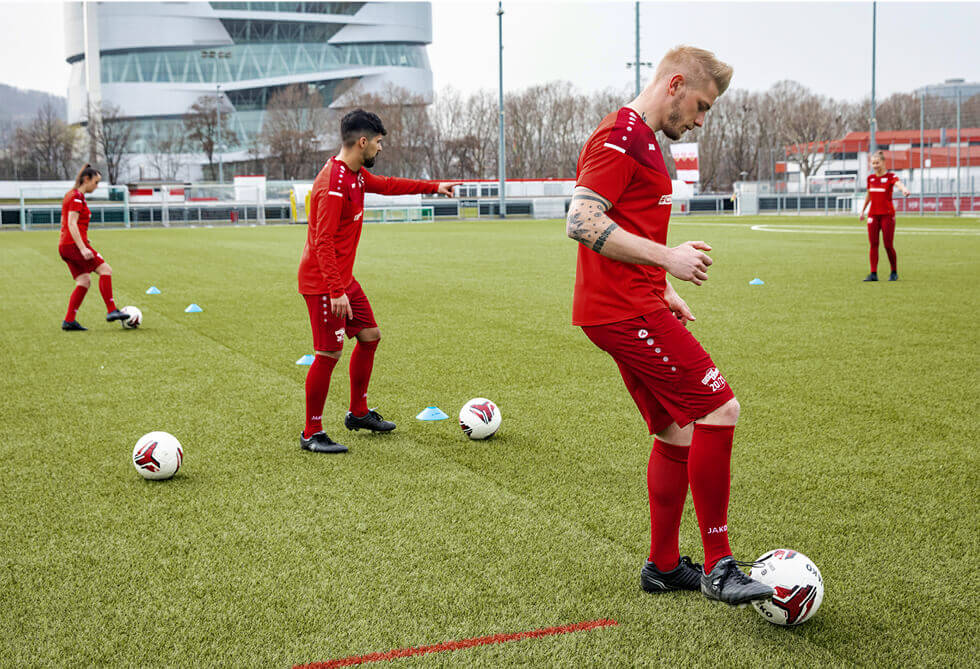
Passing
Clean passing, two-footedness and good first contact with the ball are fundamental skills for every football player. During the ninety minutes, the most important thing is to apply these skills on the move to give your team's combination play a high tempo.
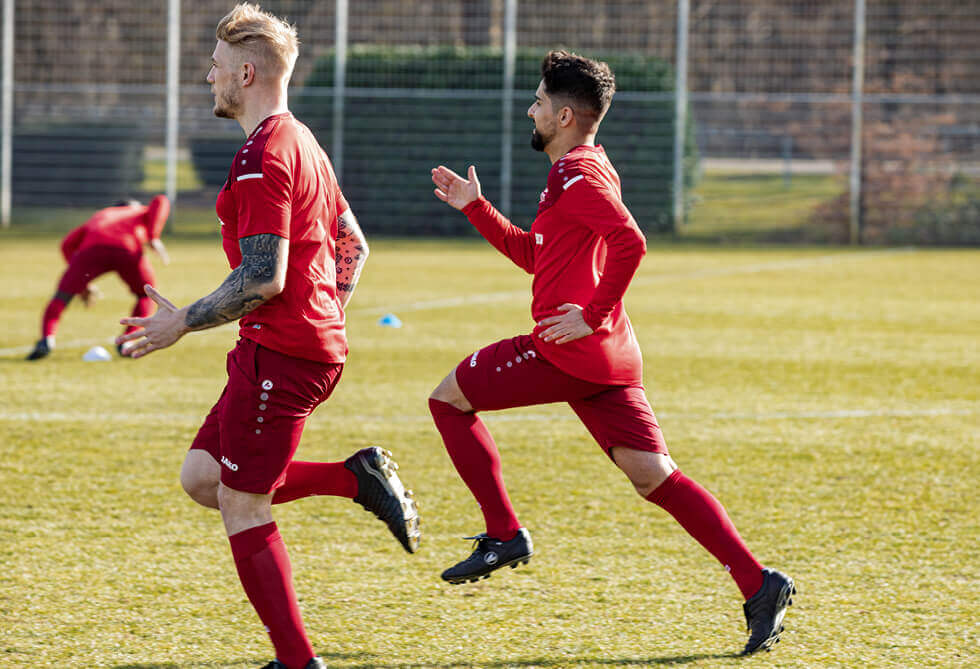
Sports-specific endurance
Here you get exactly the power you need in the decisive situations on the football pitch. Sport-specific endurance training prepares your energy systems for the numerous high-intensity actions. This way, you can call up your maximum performance for longer and stay that decisive step faster as the match progresses.
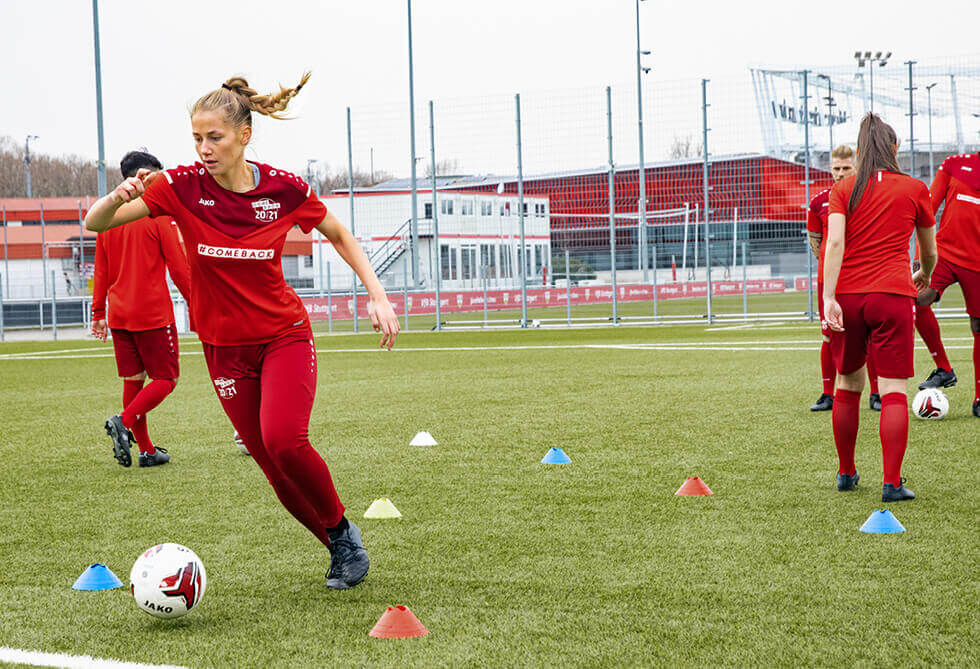
Dribbling
Strong dribbling skills make the difference for your team. At VfB Stuttgart's training centre, Heiko Gerber uses various exercises with his U21s to train the necessary ball control. Be creative: In one-on-one situations, spontaneity is also required to find solutions.
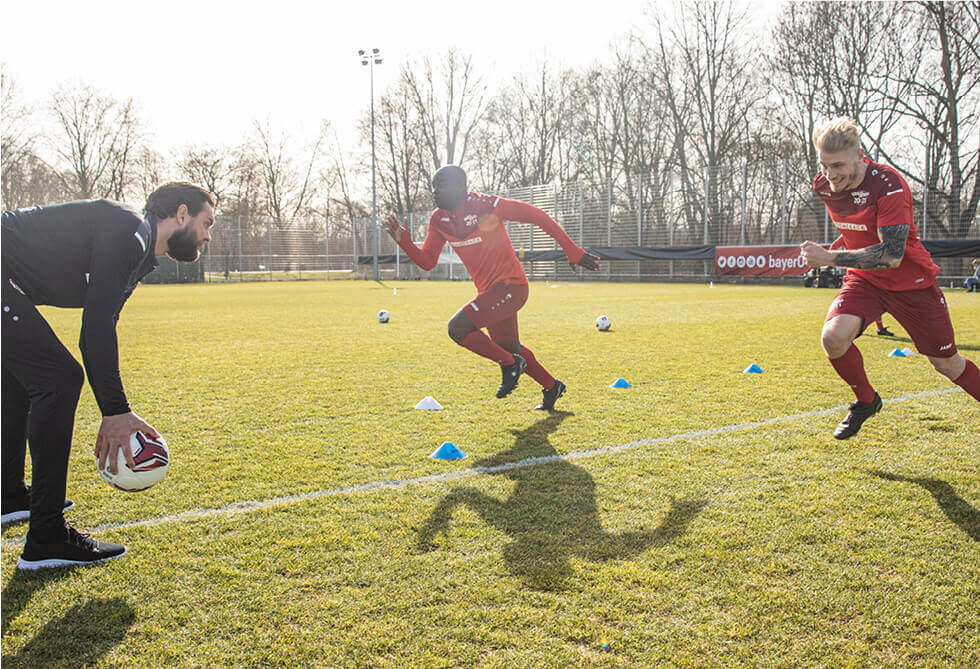
Speed
You can't train speed? You thought wrong. Genetic predispositions play an important role, but with the right training you can make significant progress. Before speed training, you should warm up well so that you can reach your maximum speed in sprints. Running school and coordination training are ideal for this.

Trainer & Team
Complete your schedule
We have created an exemplary training plan based on a preparation programme with two team training sessions per week and a few friendly matches. Use it as inspiration for your own training plan!
Plan your preparation
You can get the most out of your preparation if you set the right impulse at the right time. We discussed the most important questions about planning your preparation with Tim Riedel.

Write us a message!
Do you have questions about your training programme? Write us a message via the contact form. We'll forward it to Heiko, Tim or Maurice and get back to you with the answer! Of course, we are also happy to receive feedback on our content.

 Duitsland
Duitsland België
België Frankrijk
Frankrijk Zwitserland
Zwitserland
.jpg)
.jpg)
